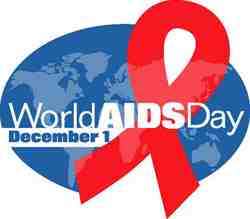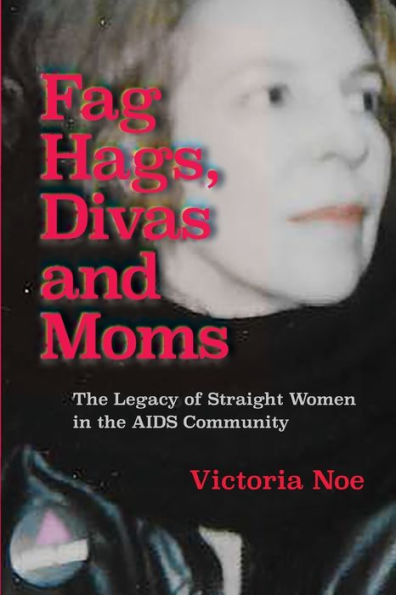World AIDS Day 2013
Dec 01, 2013 by Victoria Noe, in ACT UP
, AIDS
, Chicago Tribune
, Friend Grief
, Grief
, HIV
, LGBTQ
, World AIDS Day
In his November 4 review of Time Line Theatre’s revival of The Normal Heart, the Chicago Tribune’s Chris Jones attempts to put the play in historical context: “AIDS is no longer a death sentence.” If only.
To learn more about HIV and AIDS prevention and treatment, click here.
For information on ACT UP, and what you can do to work towards an AIDS-free generation, click here.
While it is true that those newly diagnosed are not given a prognosis of, say, thirty days (like Ron Woodroof in Dallas Buyers Club), in the fourth decade of the epidemic, there is still no cure and no vaccine.
According to the Joint United Nations Programme on HIV/AIDS (UNAIDS), new infections are on the rise in Eastern Europe and Central Asia: 13% since 2006. In the past 12 years, new HIV infections have doubled in North African and the Middle East. Worldwide, 1.6 million people died from AIDS last year.
But, that’s not us, right? That’s not the demographic so powerfully depicted in Larry Kramer’s play. Except it is.
The Centers for Disease Control reported this year that there was a 22% increase in new infection among young gay/bisexual men in the US between 2007 and 2010. They estimate that this will translate to 1 in 2 young gay men becoming infected by the time they reach the age of 50.
According to a December, 2012, report from the Chicago Department of Public Health, the city’s infection rate for gay African-American men is 35%; gay white men 16.8 percent; gay Hispanic men 12.5 percent.
As my friends in ACT UP know all too well, AIDS is not history.
And, as I knew 30 years ago, when I began volunteering, donating and raising money in the AIDS community in Chicago, everyone is at risk. Young straight women are now relying on apps to tell them when it’s “safe” for them to have unprotected sex. They define “safe” as avoiding pregnancy, without considering the risk of being exposed to HIV or other sexually-transmitted infections. Older straight women, past menopause, feel no need to use a condom because they can’t get pregnant.
There is a frightening level of denial out there. Some of it is ignorance: when we limit sex education in schools to abstinence-only, we can’t be surprised that people have incorrect assumptions about HIV transmission.
More troubling, at least to me, is the attitude that Jones alluded to: AIDS is not a death sentence. A generation has grown up being told that AIDS is “no big deal”. It’s “like having diabetes”. It’s a chronic disease – just take a pill every day and you’ll be fine.
A recent study by Case Western Reserve University of HIV positive gay men found that “those younger than 50 suffered from greater disconnection from family and friends than the older cohorts. HIV stigma played a major role; the peers of the younger group apparently don’t identify as well with someone who is living with a chronic condition. The blame game is also at play: Young people with HIV may feel that others both fault them for acquiring the virus and try to avoid them because they perceive them to be sick.” Those who are over 50 tended to have stronger support networks.
I don’t long for the “bad old days”, when memorial services and fundraising events constituted most of my social life. But the immediacy of the crisis created a sense of community that is largely gone. Other issues have stolen our attention. Our lives went on, even if those of our friends did not.
The 26th annual World AIDS Day is December 1. The theme this year is “Shared Responsibility: Strengthening Results for an AIDS-Free Generation”.
Shared responsibility, to me, begins with the widespread dissemination of accurate information on HIV/AIDS prevention and treatment: in schools and colleges, bars and homeless shelters, clinics and churches. There is shocking ignorance, particularly among young people, of their options for avoiding infection (not just condoms, but PrEP) and emergency treatment after possible infection (PEP).
Education is just the start. Funding has leveled off or declined at the federal, state and local levels: not just for prevention and treatment, but for the complicating issues of poverty, homelessness, drug abuse, mental health. Those issues represent high-risk populations that are not getting the focus they deserve.
For those living with HIV/AIDS, there is a need for more effective coordination of services: food and housing, medical treatment, mental health or drug counseling, employment, peer support. And now, thirty-plus years after the beginning of the epidemic, we have a new demographic we never anticipated: long-term survivors.
I have friends who were diagnosed in the 80s, who, thanks to the introduction of anti-retroviral medications in the 90s, are alive and reasonably well. But their HIV status – along with the previously unknown long-term effects of these powerful drugs – creates new issues for an aging population.
Over 1.1 million Americans are living with HIV/AIDS. It’s estimated that almost 20% don’t know they’re infected because they haven’t been tested. Even now – over thirty years after the first documented cases – we see 50,000 new infections a year: more than the number of people diagnosed each year with ovarian or pancreatic cancer. And people are still dying, so yes, AIDS can still be a death sentence.
If we truly believe in shared responsibility, then it is up to us to change that. Move AIDS education, prevention and treatment to the front page. Get tested and educate yourself first, and then spread accurate information to others. Demand increased funding at all levels of government. Volunteer for an AIDS-service organization. Join PFLAG or ACT UP. Include HIV and AIDS in any discussion about poverty, drug abuse or healthcare.
The title of Elton John’s memoir is Love is the Cure, and it’s true. Until we eliminate the stigma surrounding HIV/AIDS, until we embrace groups of people with whom we may have little in common, until we pull together, there will be no AIDS-free generation, here or anywhere else.
I have a daughter, niece and nephews who have never known a world without AIDS. But if we can find that sense of community again, if we can commit to widespread, accurate education about HIV/AIDS and take care of those already infected, then maybe, just maybe, their children will finally be able to say “AIDS is history.”
For information on ACT UP, and what you can do to work towards an AIDS-free generation, click here.


